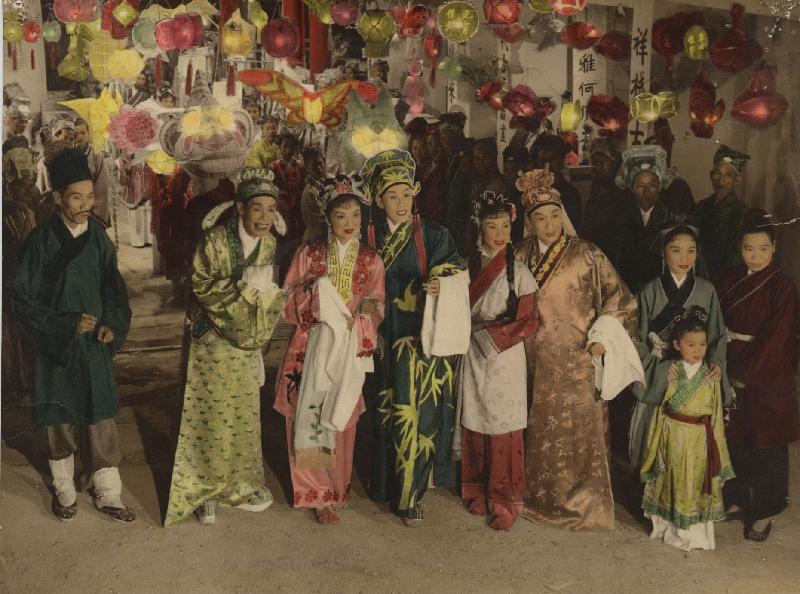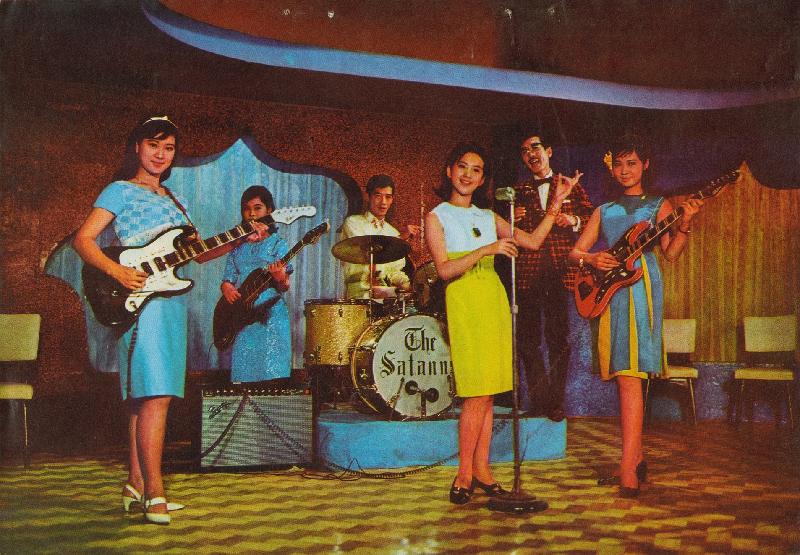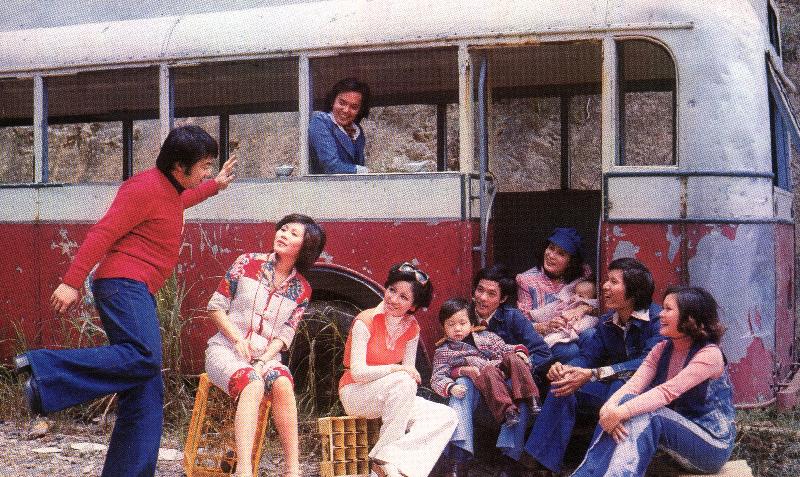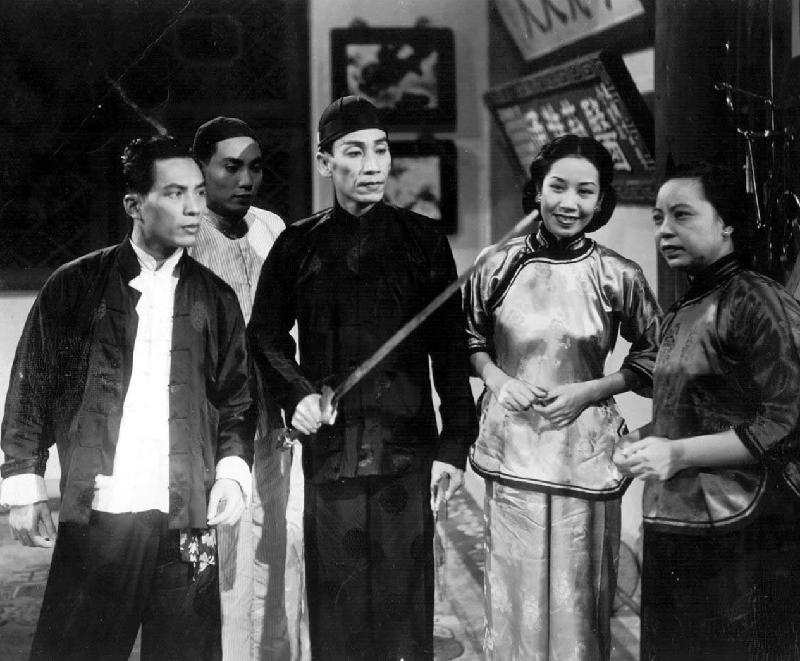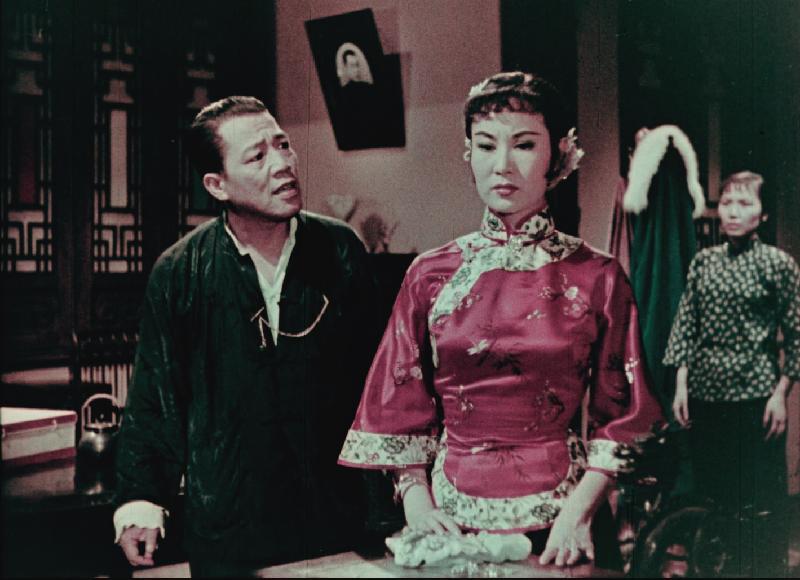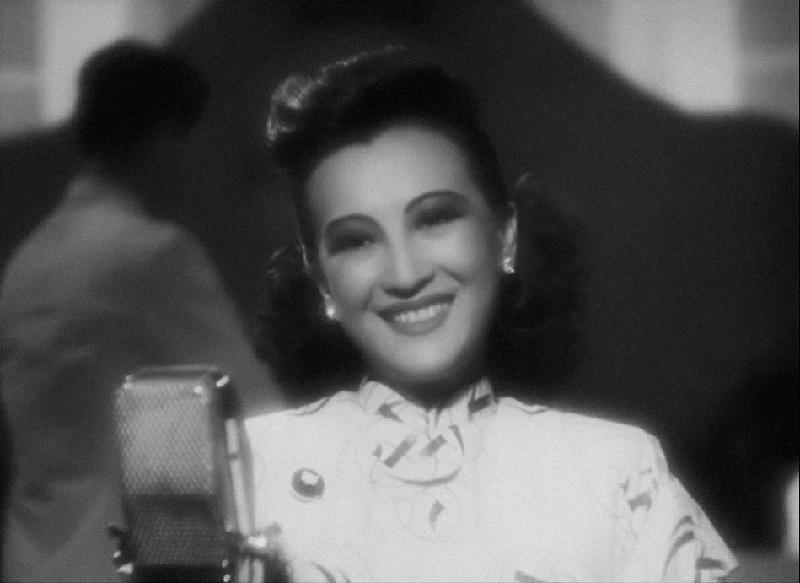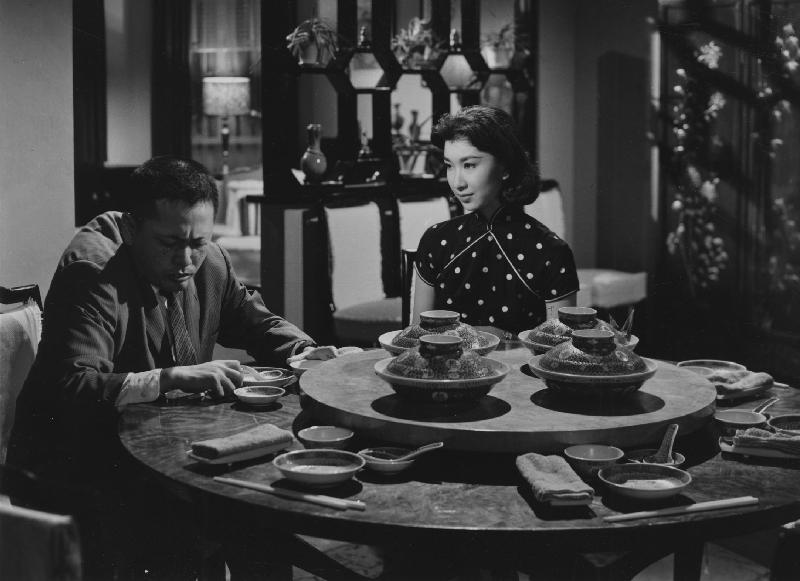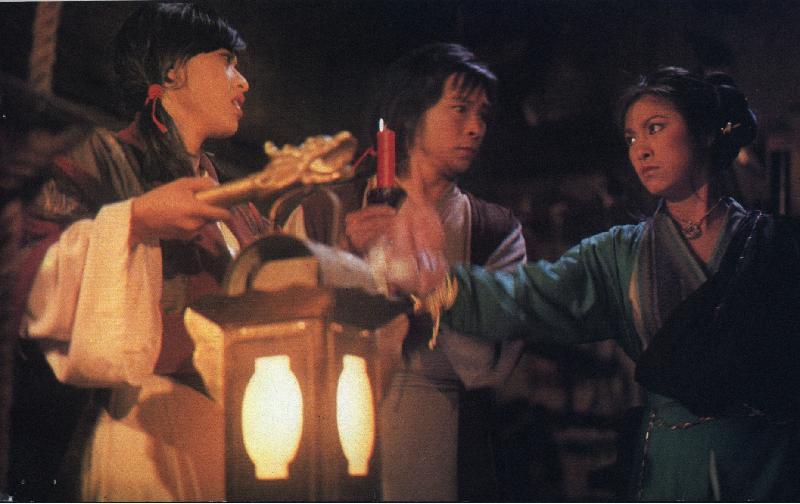Film Archive presents "Treasure-Hunt Stories" to celebrate 20th Anniversary (with photos)
*****************************************************************************************
The opening film is the 4K digitally restored version of director King Hu's "The Valiant Ones" (1975), which will be premiered on April 30 at the Grand Theatre of the Hong Kong Cultural Centre (HKCC). The film carries the classic signature of Hu in martial arts choreography and aesthetics. It tells of a famous general in the Ming dynasty fighting against marauding Japanese pirates with a band of lionhearted warriors.
Hu deposited the film's negatives in the HKFA in 1996 for permanent storage. When scratches were found the following year, the HKFA digitally restored the negatives. Compared with the first digitally restored version, the version shown in this screening is of a quality much closer to the condition of the film's original release.
To complement the screening, the HKFA will organise a special exhibition entitled "Treasure-Hunt Stories' - The Valiant Ones" at the Foyer Exhibition Area E1of the HKCC from April 20 to May 4, showcasing the acquisition story and the restoration process of "The Valiant Ones". Admission is free.
In addition, the HKFA will hold a free outdoor screening on October 27 at the HKCC Piazza C, with "Feast of a Rich Family" (1959) to be shown. Moreover, "Days of Being Wild" (midnight screening version) (1990) will be screened on December 4 at the Grand Theatre of the HKCC. Other films will be screened at the HKFA Cinema from June 5 to December 31. Some of the screenings will be accompanied by post-screening talks hosted by HKFA staff and donors, sharing the acquisition journey and the stories of the donated items, which will enable audiences to understand the full life span of the HKFA's collection.
Each item of the HKFA’s collection was not easy to come by without the selfless contribution and trust of the donors. After the passing of Li Wui-tao, the founder of Tao Yuen Film Co, his wife donated the company's films to the HKFA for permanent safekeeping, including the performance of Fung Bo-bo as a child star in "The Magic Cup, Part One" (1961). The family of Lee Gee-hing of Man Li Film Co Ltd transferred the colour negatives and black-and-white prints of "Emperor Zhengde's Night Visit to the Dragon and Phoenix Inn" (1958) to the HKFA. Since parts of the original colour negatives were damaged, the HKFA Conservation Unit improved the picture and sound quality with digital restoration techniques, resulting in this 108-minute colour version.
Dolores Wang donated a copy of "Eight Hundred Heroes" (1938), a wartime classic that her late father Daniel Wang risked his life to safeguard during the Japanese occupation of Hong Kong. She also donated "Views of Hong Kong" (1936) and "Hong Kong Sceneries" (1930-1940), providing precious records of old Hong Kong. When the company's Olympia Theatre in North Point was about to be demolished, Kwan Chee-kong of Chi Leun Film Co deposited over 100 copies of the company's titles in the HKFA, including "Colourful Youth" (1966) which enables film buffs to relish the song-and-dance charms of Connie Chan Po-chu and Josephine Siao Fong-fong on screen once again.
Upon his retirement, Lui Ming donated several hundred films to the HKFA including "Star Wonderfun" (1976), a star-studded film featuring television stars of the 70s. A group of Cantonese and Mandarin film stars volunteered to perform in "Feast of a Rich Family" which is a fundraiser for establishing a permanent office of the South China Film Industry Workers Union (SCFIWU). To mark its 50th anniversary, the SCFIWU deposited this highly significant film permanently in the HKFA.
Director Lung Kong has always been mindful of the Hong Kong film industry despite emigrating to the United States. Apart from lending his copy of "Hiroshima 28" (1974), a work themed on anti-atomic warfare to the HKFA, Lung even participated in the process of striking a new print with his valuable advice, showing his dedication to pass on the heritage of Hong Kong film culture. Knowing the laboratory that processed "Butterfly and Red Pear Blossom" (1959) upon its imminent closing, director Lee Tit deposited the prints of the film in the HKFA. Since the film had suffered extensive damage in repeated screenings, the HKFA Conservation Unit put together elements with prints collected from different sources to reinstate the artistic glory of this masterpiece of Cantonese opera film.
Ben Wong's family operated theatres in San Francisco and found a number of films made by the Grandview Film Company overseas in the 1940s in the family warehouse. He decided to donate them to the HKFA, including the first 16mm Cantonese film in full colour, "White Powder and Neon Lights" (1947). The HKFA obtained the negatives of director Fei Mu's lost classic "Confucius" (1940) from an anonymous donor. Based on scientific forensic evidence and literary materials, the HKFA inserted nine minutes of assorted shots and scenes, which were believed to have been removed, into the original 87-minute restored version, restoring the film to a condition much closer to its original glory.
Filmed by Lai Man-wai, the father of Hong Kong cinema, documentaries "The Battle of Shanghai" (1937) and "A Page of History" (1941) are invaluable treasures. Thanks to the donation of Lai's family, the HKFA can give audiences a chance to relive history through these precious images. Producer Wong Cheuk-hon, who was an industry trendsetter, had identified various film stars, such as Ting Ying in "Three Love Affairs" (1963). With the help of his son, Wong Hoi, the HKFA is able to add many classic works of Wong's companies to the collection for preservation.
As a staunch supporter of the HKFA, director Yonfan agreed to donate the negatives and copies of his films to the HKFA. Yonfan is also well known for his very strict standards in arts which has been displayed in his Kunqu opera film "Breaking the Willow" (2003). The HKFA had been intensively seeking the negative of Tong Shu-shuen's directorial debut "The Arch" (1970). Eventually, a print was found in the home of the film investor, which the investor's family quickly decided to donate to the HKFA.
Gordon Fung, a cinema operator and film investor, ardently supports the work of cultural inheritance. With Fung's personal introduction, the HKFA received a generous donation from Jack Lee Fong, founder of San Francisco's Palace Theatre. The treasure trove contained Chinese-language nitrate films from the 1930s and 40s, including "Struggle" (1933) and "The Light of Women" (1937). In addition, Fung also donated more than 1 000 precious copies of films and several tens of thousands of collection items to the HKFA. These include director John Woo's "Bullet in the Head" (midnight screening version) (1990) and director Wong Kar-wai's "Days of Being Wild" (midnight screening version).
The donations of various film companies have greatly enriched the archival collection. In 2009, Celestial Pictures Limited transferred over 700 film prints and tens of thousands of artefacts and materials of the Shaw Brothers Film Library to the HKFA for preservation, inclusive of director Li Han-hsiang's huangmei diao classic "The Love Eterne" (1963) and director Johnnie To's story of firefighters, "Lifeline" (1997). The film library of Fortune Star Media Limited consists of numerous Hong Kong films made from the 1970s to after the millennium. In 2011, the film prints in their vaults had successfully been transferred to the HKFA, including director Stanley Kwan's "Center Stage" (1992) which stars Maggie Cheung.
In 2011, Television Broadcasts Limited had handed over about 1 000 film titles to the HKFA for permanent preservation, in which about 60 per cent of these archival films were brand new collections, including "The Story of Wong Fei-hung, Part I: Wong Fei-hung's Whip that Smacks the Candle" (1949) and "The Story of Wong Fei-hung, Part II: Wong Fei-hung Burns the Tyrant’s Lair" (1949).
In order to fill the blank spaces in the Hong Kong film history, the HKFA has also persistently pursued the missing old films. The discovery of "The Orphan" (1960) is among the most unexpected of the HKFA's treasure-hunt stories. At the planning and preparation stage, a representative of the HKFA was sent to the United Kingdom to learn more about setting up a film archive. It so happened that Rank Film Laboratories was handling the negatives of some Chinese-language films and asked the HKFA staff to take a look. The staff member then immediately recognised the importance of those films, such as "The Orphan", the last film that martial arts superstar Bruce Lee made before leaving Hong Kong.
At its planning stage, the HKFA was not well known among the film industry. Its members often had to visit film companies to persuade them to give material donations, one of which was the Cathay Organisation (Cathay). Cathay moved its corporate offices to Singapore in the 1970s, which made acquisitions much more difficult. The long-running and cross-border persuasion finally concluded with the acquisition of over 10 000 films and related collections by the HKFA which include "The Wild, Wild Rose" (1960), a musical tailor-made for Grace Chang and "The Greatest Civil War on Earth" (1961), featuring hefty quarrelsome rivals Leung Sing-por and Liu Enjia.
Regarded as the first Chinese film shot in Eastmancolor, "Blood Will Tell" (1955) is a Hong Kong-Japan co-production that had been lost for years. When a representative of the HKFA was in Japan for an official visit, she gained the consent of the Kawakita Memorial Film Institute coincidently for borrowing their sole copy of the film to strike a copy, adding this cherished work to the HKFA’s collection.
About to leave Hong Kong for emigration, producer Miu Hong-nee was in a hurry to donate a large number of Hong Kong films made between the 1940s and 1960s. To prevent the loss of this important collection of Hong Kong films, such as "An All-Consuming Love" (1947), featuring the renowned songbird Zhou Xuan, the HKFA fortunately found storage space for the donation in an extremely short time. By coincidence, the HKFA discovered "The Deformed" (1960), the masterpiece of director Griffin Yue Feng. This long-lost treasure was entirely embossed with subtitles in a brass-plated press, which was rarely seen in the 1960s.
Recognising that the World Theatre of San Francisco was closing, the HKFA promptly sent a team across the Pacific, recovering over 600 copies of films which include the remarkable work of director Lee Sun-fung, "It Was a Cold Winter Night" (1955). David Quan, the son of Kwan Tak-hing, not only donated to the HKFA materials left behind by his father, but also a number of 1960s film postbills he found in the Great Star Theatre of San Francisco. Following this lead, the HKFA contacted the Wu family who operated the theatre, managing to find a batch of 1950s and 1960s films in the family basement, among them classics like "Lady Bond" (1966) staring Connie Chan Po-chu.
Mandarin Laboratory (International) Limited decided to move to smaller premises and thus they contacted film owners to collect the product they had stored there previously. After tireless persuasions made by the company, many of the film owners agreed to donate their prints to the HKFA, including the debut work by Tsui Hark, "The Butterfly Murders" (1979).
"The Valiant Ones", "Hiroshima 28", "Confucius", "The Battle of Shanghai", "A Page of History", "Breaking the Willow", "The Arch", "Struggle", "The Love Eterne", "The Wild, Wild Rose", "Blood Will Tell", "An All-Consuming Love" and "The Deformed" are in Mandarin; "The Greatest Civil War on Earth" is in Mandarin and Cantonese; "Eight Hundred Heroes", "Views of Hong Kong" and "Hong Kong Sceneries" are silent films and the other films are in Cantonese. "Feast of a Rich Family", "The Magic Cup, Part One", "Hong Kong Sceneries", "Colourful Youth", "White Powder and Neon Lights", "Three Love Affairs", "The Battle of Shanghai", "A Page of History", "Struggle", "The Light of Women", "The Story of Wong Fei-hung, Part II: Wong Fei-hung Burns the Tyrant’s Lair", "The Wild, Wild Rose", "The Greatest Civil War on Earth", "Blood Will Tell", "An All-Consuming Love", "Lady Bond" and "The Butterfly Murders" are without subtitles, while the other films are with subtitles.
Tickets priced at $45 are now available at URBTIX (www.urbtix.hk). For credit card telephone bookings, please call 2111 5999. For programme enquiries, please call 2739 2139 or visit www.filmarchive.gov.hk/en_US/web/hkfa/programmesandexhibitions/programmes/ths/index.html.
Apart from screening the archival items, other celebration events of the HKFA's 20th Anniversary include an open day and exhibitions. An HKFA 20th Anniversary souvenir booklet is being published as well.
Situated at 50 Lei King Road, Sai Wan Ho, the HKFA first started operation in 2001, housing a cinema, an exhibition hall, a resource centre, film vaults and restoration laboratories. In addition to its mission of preserving film heritage through the acquisition and restoration of film prints, the HKFA has also forged ahead in research, publications, screenings, exhibitions and various other activities, introducing the riches of Hong Kong's cinematic heritage to film lovers and the general public. The HKFA is a member of the International Federation of Film Archives.
In view of the latest situation of COVID-19, audiences should take note of the special arrangements for screening venues, admission and seating to be implemented. For details, please call 2739 2139 or visit www.filmarchive.gov.hk/en_US/web/hkfa/aboutus/openhl.html.
Ends/Friday, April 9, 2021
Issued at HKT 16:30
Issued at HKT 16:30
NNNN





